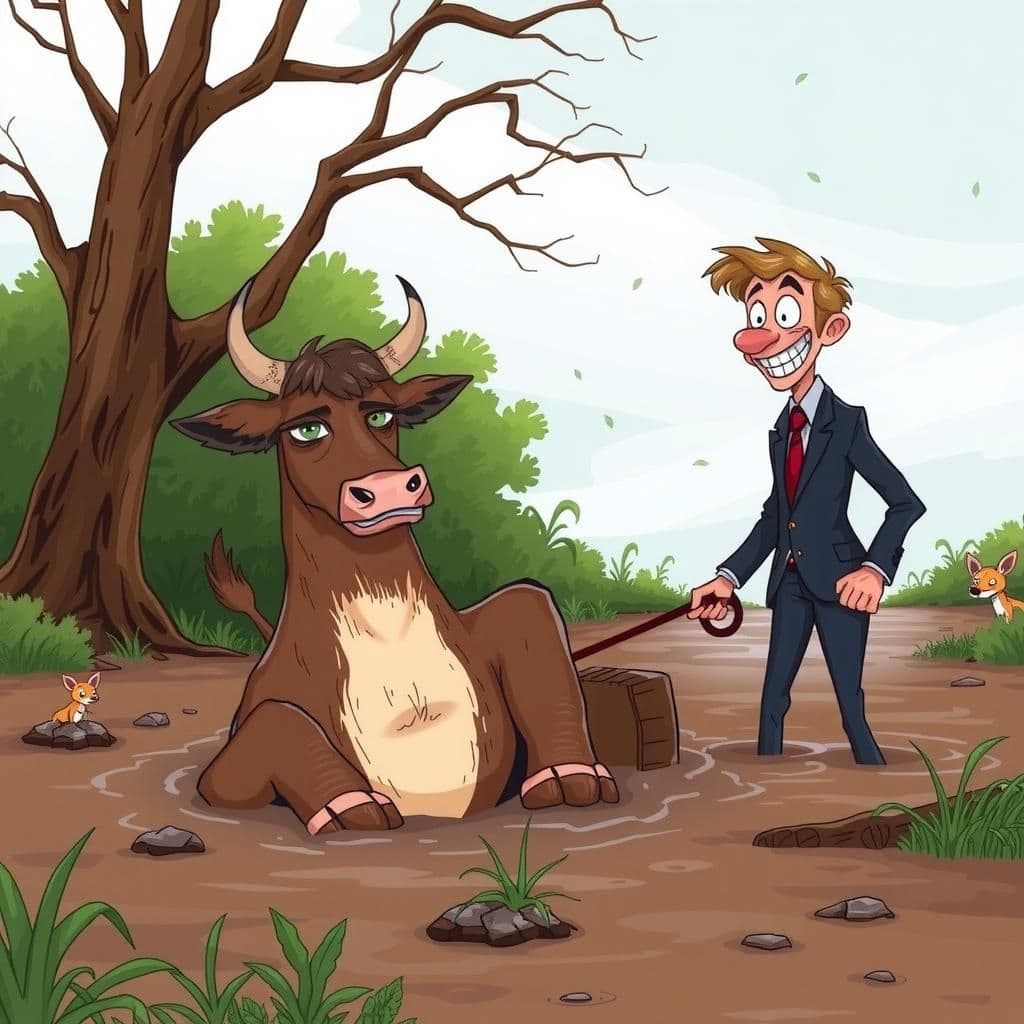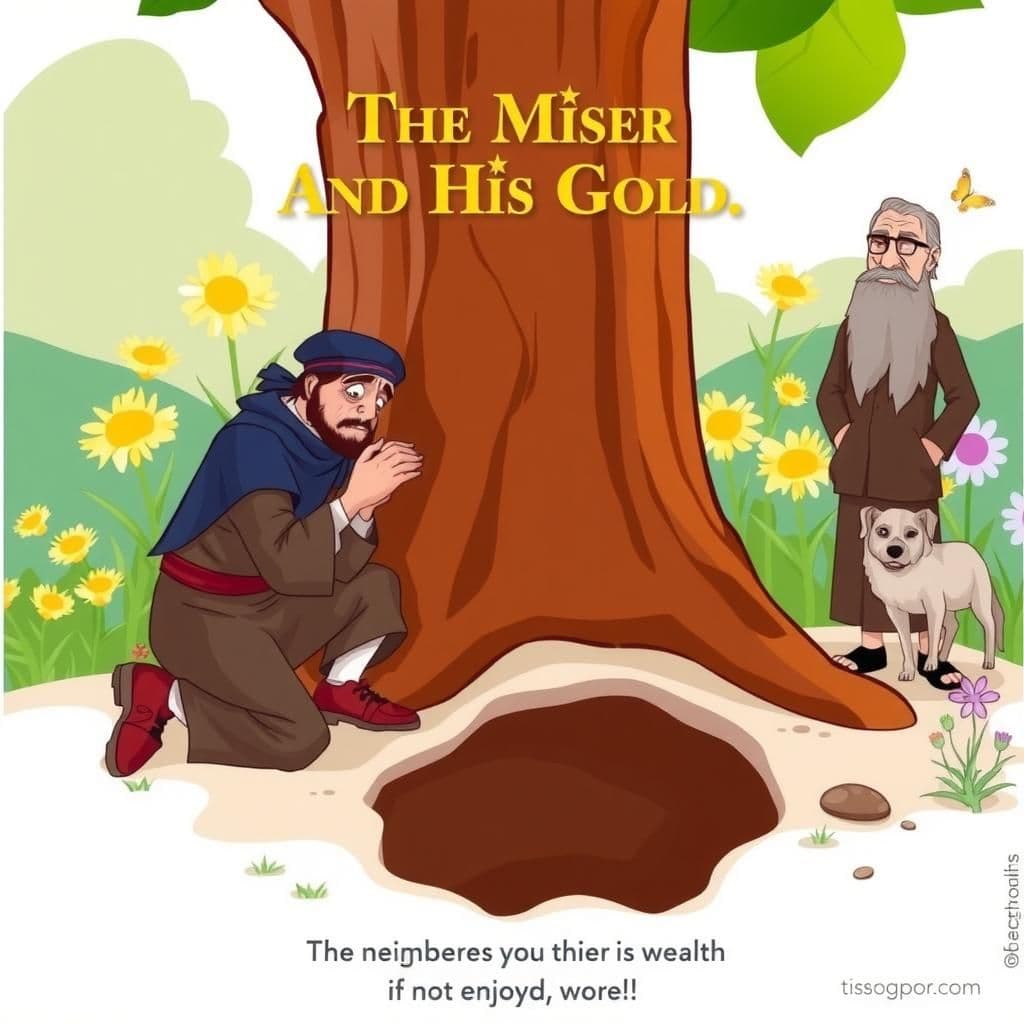An Inadequate Fee

Story Summary
In "An Inadequate Fee," a trapped Ox enlists the help of a Political Pull, who rescues him from the mire but is left with only the Ox's skin as a reward. Discontent with this meager fee, the Political Pull vows to return for more, highlighting the lessons learned from stories about greed and the costs of assistance. This short moral story serves as a reminder of the importance of recognizing the value of help received, even in challenging situations.
Click to reveal the moral of the story
The story illustrates that those who exploit others for personal gain may find their rewards insufficient and face discontent with the outcomes of their actions.
Historical Context
This story reflects themes from Aesop’s fables, which often convey moral lessons through anthropomorphized animals and situations that highlight human folly and vice. The narrative echoes the fable tradition's exploration of political and social dynamics, illustrating the potential exploitation inherent in relationships of power and the consequences of reliance on others. Similar retellings can be found in various cultures, where the interplay between dependency and manipulation is a recurring motif, emphasizing the moral complexities of human nature.
Our Editors Opinion
This fable illustrates the dangers of relying on influential connections at the expense of one's own well-being, a theme that resonates in modern life where networking and favoritism can sometimes lead to exploitation. For instance, a young professional might seek the help of a powerful mentor to secure a job, only to later find themselves overworked and underappreciated, realizing that the mentor's support came with strings attached that ultimately benefit the mentor more than the mentee.
You May Also Like

The Dog Who Lost His Prey for a Shadow
In Aesop's classic moral story, "The Dog Who Lost His Prey for a Shadow," a dog foolishly drops its actual prey to chase after its reflection in the water, nearly drowning in the process. This entertaining tale serves as a cautionary lesson on the dangers of greed and the deception of appearances, making it a standout in short story collections with moral lessons for young readers. Aesop's fables remain among the top 10 moral stories, highlighting timeless truths about human nature.

The Miser and His Gold
A Miser hides his gold at the foot of a tree, visiting it regularly to gloat over his wealth but never using it, illustrating a classic moral lesson. When a robber steals the gold, the Miser laments its loss, only to be reminded by a neighbor that since he never utilized the treasure, he might as well simply look at the empty hole instead. This tale, one of the top 10 moral stories, teaches that wealth is worthless if not put to use.

The Woman and Her Hen
In this famous moral story, a woman who owned a hen that laid an egg daily became greedy, hoping to receive two eggs by feeding the hen extra barley. Instead, her actions backfired as the hen grew fat and stopped laying eggs altogether, leaving her with nothing. This uplifting moral story serves as a life lesson: greed can lead to unexpected consequences, reminding us to appreciate what we have.
Other names for this story
A Political Pull's Fee, The Cost of Rescue, A Deal with the Devil, The Price of Help, Nature's Invoice, The Ox's Dilemma, Fat and Fees, A Tangled Rescue
Did You Know?
This fable cleverly critiques the exploitation inherent in political systems, illustrating how those in power often seek to benefit from the struggles of others while leaving the original victim with little to show for their plight. The Ox's reliance on the "Political Pull" serves as a metaphor for how individuals may become pawns in larger schemes, ultimately leading to their own detriment.
Subscribe to Daily Stories
Get a new moral story in your inbox every day.